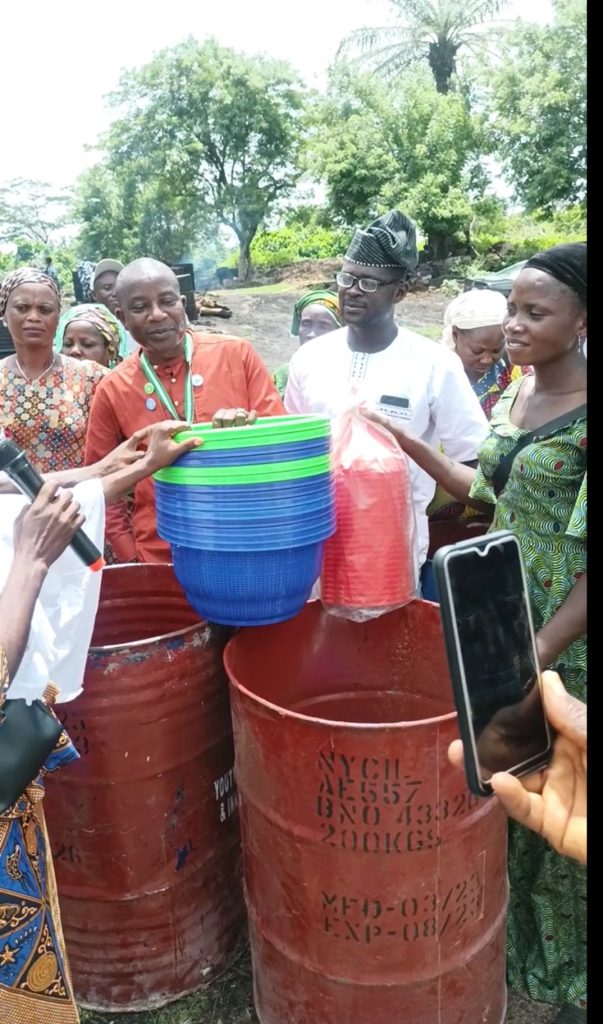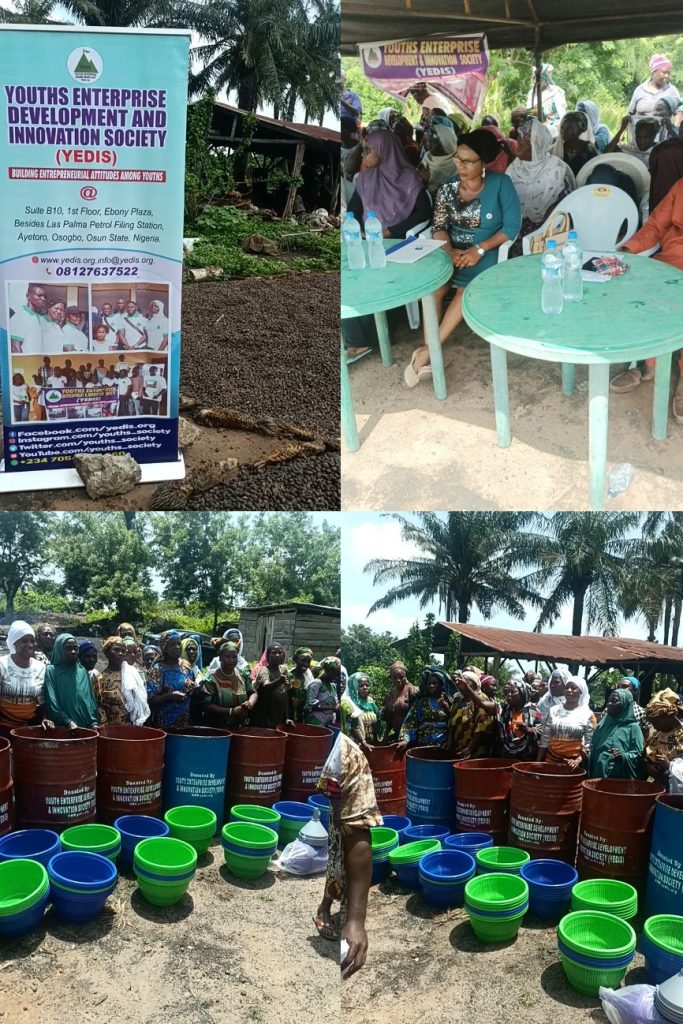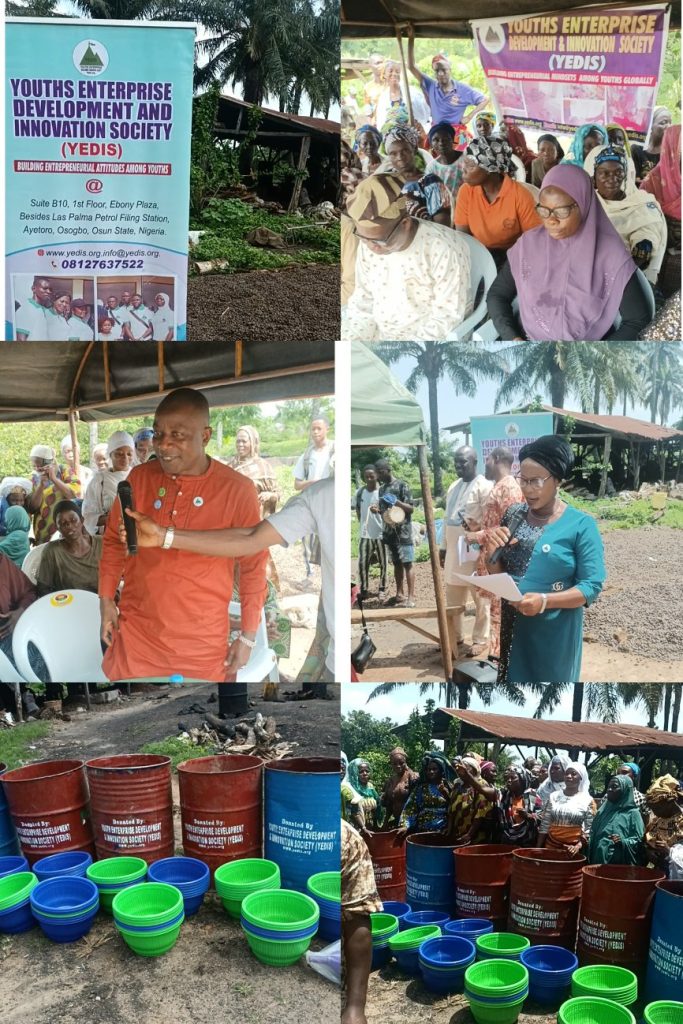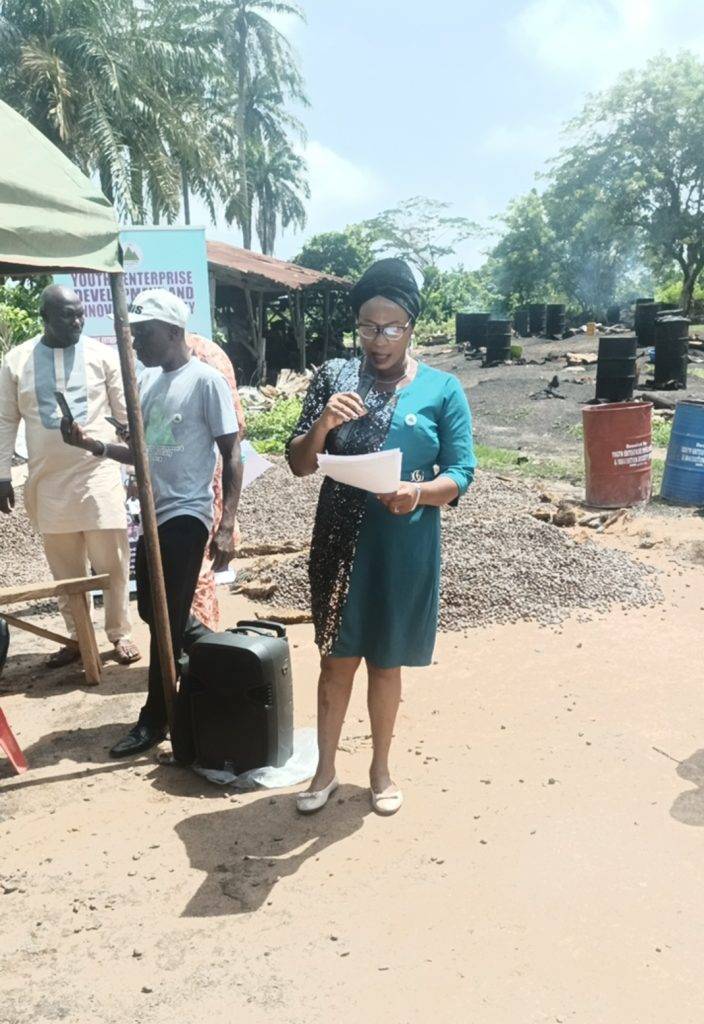Agri-entrepreneurship Training Speech at the Capacity Building Workshop in Obaagun, Osun State, Nigeria.
Organized by Youths Enterprise Development & Innovation Society (YEDIS) on May 26, 2023.
Water Management
Water management plays a significant role in agricultural productivity, climate resilience, youth employment, and economic development. Water is the primary food production factor rural communities need to secure. Adequate agricultural water management transforms the food system and promotes food security. Insufficient clean water limits food production in marginalized communities and exposes people to health danger and unemployment. Every farm product requires water, including production, for economic development.
Clean Water
A clean and plentiful water supply is essential for productive agriculture to supply the public with adequate food and fibre (USDA). In underserved communities with primitive farming methods, a lack of mechanized agribusiness systems and non-irrigated agriculture hinder food security and a global food transformation system. Based on Youths Enterprise Development and Innovation Society (YEDIS) team observations, through interactions with marginalized farmers and agribusiness leaders, it is observed that marginalized young women use non-mechanized boreholes and stream water for agrifood production. This challenge requires urgent attention and support from International agencies, Governments, private organizations and other stakeholders.
Clean water is compulsory to provide hygienic and better-quality food, transforming the food systems, facilitate efficient production and creating gainful employment for youth.
Due to population growth, urbanization, and climate change, competition for water resources will increase, with a particular impact on agriculture. The population will likely increase to over 10 billion by 2050, and whether urban or rural, this population will need food and fibre to meet its basic needs. Combined with the increased consumption of calories and more complex foods, which accompanies income growth in the developing world, estimation shows that agricultural production will need to expand by approximately 70% by 2050 (World Bank).
Water and climate change are inextricably linked. Climate change affects the world’s water in complex ways. From unpredictable rainfall patterns to shrinking ice sheets, rising sea levels, floods, and droughts – most climate change impacts the water (UN Water).
We call on Government, International agencies, private organizations and nonprofit organizations to support marginalized communities and introduce water and climate-smart farm practices to advance food security for sustainable employment, gender equality, and community development.
Climate change and variability
Climate change will lead to more frequent and intense extreme weather events like droughts and floods, devastatingly impacting food production systems. Sound water management is essential for building societal resilience against increased risks (FAO).
Conclusion
On behalf of YEDIS, we use this medium to appeal to the Government, private organizations, and philanthropists to support food production by providing a conducive environment and infrastructure facilities, specifically clean water for food security. We urged the youth, especially the women and girls in palm oil production, to take advantage of the capacity-building workshop and business empowerment support items provided by the Youths Enterprise Development and Innovation Society (YEDIS) to develop their businesses profitably.
Facilitator: Mrs Alaje Grace Oluwatosin is a Chief Technologist, Faculty of Science, Osun State Polytechnic, Iree, Nigeria. She is a YEDIS volunteer and facilitator.
URL: https://yedis.org
Nigerian Television Authority (NTA) News





